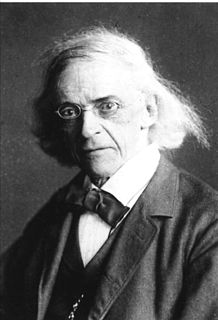A Quote by Barry Humphries
Now the point of comedy is not just looking funny, it's use of language. We have at our disposal a great language... and the imaginative, creative use of that language can be at the service of humour.
Related Quotes
I believe that we must use language. If it is used in a feminist perspective, with a feminist sensibility, language will find itself changed in a feminist manner. It will nonetheless be the language. You can't not use this universal instrument; you can't create an artificial language, in my opinion. But naturally, each writer must use it in his/her own way.
There is a narrow class of uses of language where you intend to communicate. Communication refers to an effort to get people to understand what one means. And that, certainly, is one use of language and a social use of it. But I don't think it is the only social use of language. Nor are social uses the only uses of language.
Being a slow reader would normally be a deficiency; I found a way to make it an asset. I began to sound words and see all those qualities - in a way it made words more precious to me. Since so much of what happens in the world between human beings has to do with the inconsideration of language, with the imprecision of language, with language leaving our mouths unmediated, one thing which was sensuous and visceral led to, in the use of language, a moral gesture. It was about trying to use language to both exemplify and articulate what good is.
Language designers want to design the perfect language. They want to be able to say, 'My language is perfect. It can do everything.' But it's just plain impossible to design a perfect language, because there are two ways to look at a language. One way is by looking at what can be done with that language. The other is by looking at how we feel using that language-how we feel while programming.
The majority of the people of the world today are unsane, not insane, unsane meaning having been exposed to methods of evaluation that have long rendered obsolete, our language in the future will change to a saner language where we have no argument in it, 'can there be such a language?' there is, when engineers talk to each other, it's not subject to interpretation, they use math, they use descriptive systems, if I interpreted what another engineer said in the way I think he meant it: you couldn't build bridges, dams, power transmission lines. The language has to have meaning
We're trying to be very careful and precise in our use of language, because I think the language we use and the images we project really do have resonance. It's the reason why I don't use the term jihadist to refer to terrorists. It gives them the religious legitimacy they so desperately seek, but I ain't gonna give it to them.
There is something false in this search for a purely feminine writing style. Language, such as it is, is inherited from a masculine society, and it contains many male prejudices. We must rid language of all that. Still, a language is not something created artificially; the proletariat can't use a different language from the bourgeoisie, even if they use it differently, even if from time to time they invent something, technical words or even a kind of worker's slang, which can be very beautiful and very rich. Women can do that as well, enrich their language, clean it up.

































